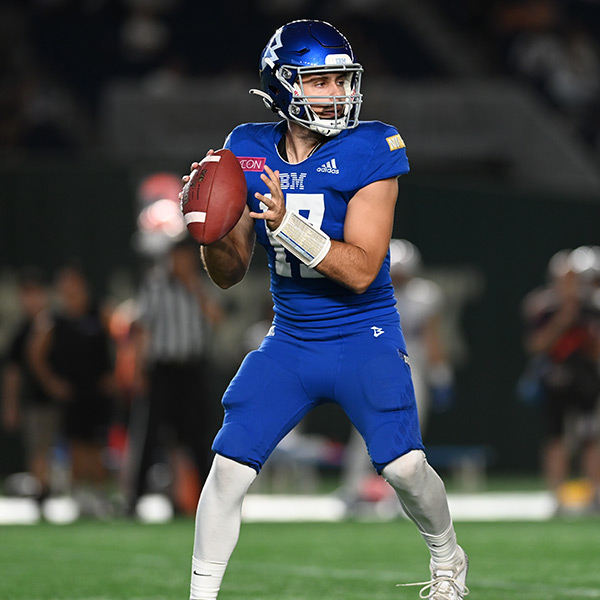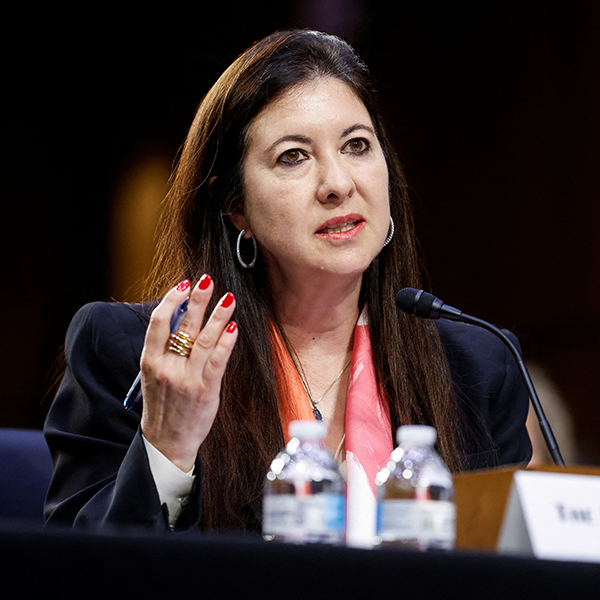For athletes, success in the big competitions can lead to riches and fame, so for some the temptation to boost their results with performance-enhancing substances is strong. That’s when the World Anti-Doping Agency (WADA) steps in.
“Our goal,” say Olivier Niggli, MBA’06, director general of WADA, “is to protect the integrity of sport and the health of the athletes, so that athletes can compete on a level playing field.
“I was always passionate about sport,” says Niggli, an avid skier and sailor. After completing his law degree at the University of Lausanne, he joined a firm with a strong sports law portfolio and became involved in WADA’s 1999 creation.
“WADA was like a start-up: we were creating a new organization, a new joint venture between governments and sports,” he recalls. He soon became WADA’s outside counsel, which in 2001 led to being recruited as in-house counsel. When WADA’s headquarters moved from Switzerland to Montreal, Niggli moved with it.
With his primarily legal background, Niggli felt he needed a broader education to fulfill his growing responsibilities. McGill offered a two-year MBA program that allowed students with jobs to attend classes in the evening and on weekends. “For the next two years, my life stopped,” he says. “I was privileged to study in this intellectual environment: I received education in finance, marketing, and human resources management.”
He also benefited from regular contact with Dick Pound, BCom’62, BCL’67, LLD’09, at the time both the president of WADA and the chancellor of McGill. His association with Pound predates WADA, as Niggli was working with Pound when he was vice president of the International Olympic Committee (IOC) in charge of addressing corruption in that organization.
“He was a very impressive model for a young lawyer,” says Niggli. “Our relationship was professional to start, but has evolved into friendship. In Montreal he was up the road from my office, so we had daily conversations.” Niggli continued with WADA until 2011, briefly returned to private law, and then rejoined WADA as COO and general counsel in 2014. In 2016, he assumed his current role.
Today, Niggli oversees the full range of WADA’s activities. Anti-doping, he explains, rests on three pillars. The first is deterrence: you get positive results on a doping test, and you are sanctioned; this, he notes, is the “classic version of anti-doping.”
A second pillar, developed in the last 10 years, focuses on investigation: “Elite athletes have entourages that include coaches, physiotherapists, and others. We want to ensure that it’s not just the athletes paying the price, but everyone who benefits from cheating.” Of course, this approach requires collaboration with sports federations and public authorities.
Education forms the third pillar. “You can only change behavior through proper education: people understanding the values of sport, the danger of doping for themselves, and why it is important to be truthful to oneself rather than to obtain results by cheating,” Niggli says. “For athletes from some parts of the world, the first time they hear about doping is when they are called to a doping test after a competition.”
To that end, WADA is engaged in developing an education program accommodating cultural differences, an issue it will address at a global education conference in February 2024.
But the media focus generally falls on the first pillar: the testing for banned substances and subsequent punishments. Substances on WADA’s annually-updated “prohibited” list meet two out of three criteria: substance use enhances performance, poses a health risk, and runs contrary to the spirit of sport.
A recent high-profile case concerns Russian figure skater Kamila Valieva, whose test results during the 2022 Winter Olympics, when she was 15, showed trimetazidine, a banned substance generally used to treat cardiac issues; her team claimed the drug was accidentally ingested.
The case remains before the Court of Arbitration, sport’s highest court; the gold medal in the team event hangs in the balance.
“Minors are vulnerable to their entourage, and our position is that there should be no mercy for people who dope minors or who allow for that to happen,” Niggli stresses. “But often people in the entourage are apart from the sport system, so it’s up to public authorities to ensure that anyone doping a minor is punished under criminal law.”
WADA’s mandate covers all Olympic sports, plus a number of non-Olympic sporting bodies that are signatories, and it continues to expand.
“For instance, e-sports weren’t on our radar five years ago, but tournaments have big money, which increases the risk of cheating” says Niggli. “The current list of prohibited substances features a number of substances that could increase concentration and alertness.”
WADA has met with e-sports groups, but unlike established sports, e-sports have no international federations to oversee all events globally. “The first step is to educate players, most of whom are very young, because their health is at stake,” says Niggli. “The detect-and-punish component will come after, when the e-sports world is more formally structured.”
In the meantime, WADA must keep up with advances enabling potential cheaters in sports ranging from alpine skiing to water polo. WADA’s agreements with the pharmaceutical industry enables WADA laboratories to develop tests to detect new molecules as they are in development. “So when these substances become available and might be misused, we’re ready.”
In addition, WADA is entering the age of AI. “With the right tools to analyse data – and we collect a lot of data – we can detect things that may not be obvious to human eyes,” Niggli says. “With artificial intelligence, anti-doping testing can become a lot more precise and efficient.”


